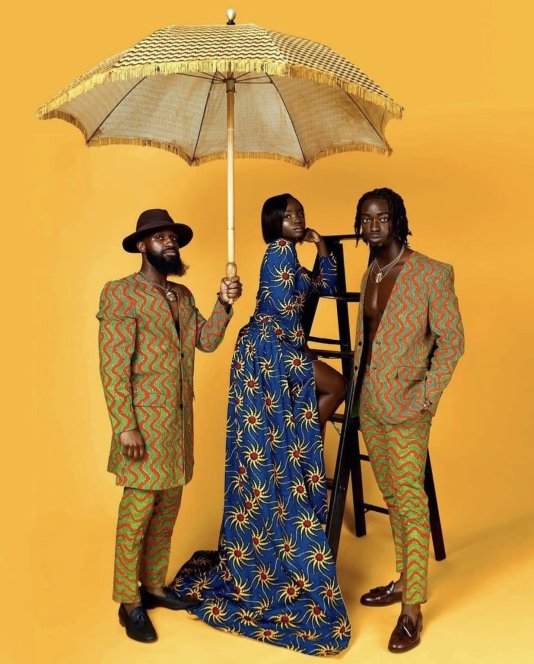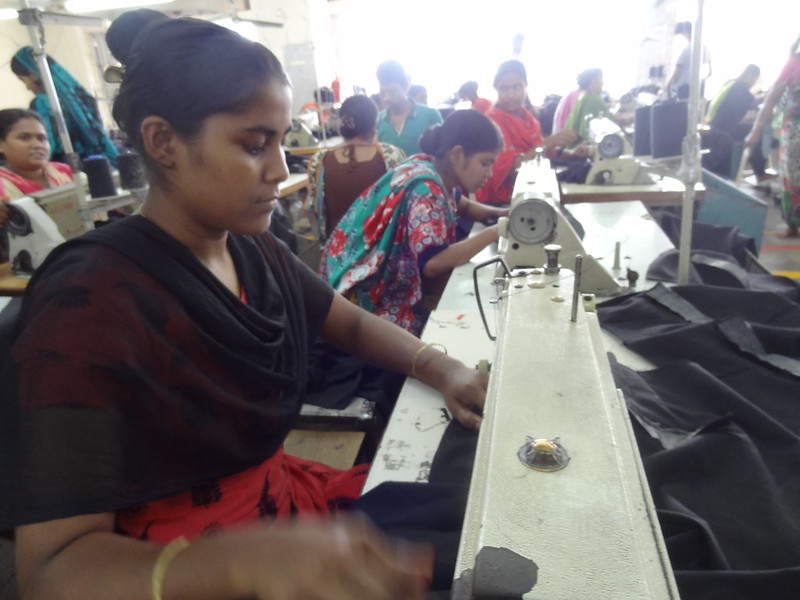- About
- Topics
- Picks
- Audio
- Story
- In-Depth
- Opinion
- News
- Donate
- Signup for our newsletterOur Editors' Best Picks.Send
Read, Debate: Engage.
| October 29, 2022 | |
|---|---|
| topic: | Climate action |
| tags: | #Africa, #climate change, #sustainability, #fashion |
| by: | Bob Koigi |
Africa contributes less than 4 percent to global greenhouse gas emissions, yet it is disproportionately affected by the climate crisis.
And despite the continent’s creative industry contributing less than 1 percent to the global creative economy, African creatives and their initiatives are drawing global attention for their efforts to meet the challenges of climate change and environmental degradation.
From architects and artists to fashion designers, the entire industry is at the front line of the battle to tame emissions.
As demand for housing across the continent burgeons, buoyed by the booming population - especially in urban areas, African architects are coming up with innovative techniques that incorporate local designs and building materials that have embraced sustainability.
Diébédo Francis Kéré, a Burkinabè architect based in Germany, is celebrated as the father of sustainable African architecture. Kéré uses local building materials to respond to natural climate and has worked with marginalised communities struggling with access to housing - constructing for them climate-resilient buildings inspired by historic designs from Burkina Faso.
This year he was awarded the coveted Pritzker Prize for his unique and sustainable designs.
"I am hoping to change the paradigm, push people to dream and undergo risk," Kéré said during the award ceremony. "It is not because you are rich that you should waste material. It is not because you are poor that you should not try to create quality.
"Everyone deserves quality, everyone deserves luxury and everyone deserves comfort. We are interlinked and concerns in climate, democracy and scarcity are concerns for us all."
Lauding his work, Prizker said in a statement that: "Francis Kéré is pioneering architecture - sustainable to the earth and its inhabitants - in lands of extreme scarcity. He is equally architect and servant, improving upon the lives and experiences of countless citizens in a region of the world that is at times forgotten.
"Through buildings that demonstrate beauty, modesty, boldness and invention, and by the integrity of his architecture and geste, Kéré gracefully upholds the mission of this Prize."
In Rwanda, the iconic Gahanga Cricket Stadium was recognised for investing in sustainable construction methods with the designs representing the East African country’s culture and terrain, including Rwanda's rolling hills.
The materials that were excavated during the construction of the pavilion’s foundation were later used to build its roof, with workers trained on how to mold the bricks.
In Senegal, the futuristic USD $2 billion Diamniadio Lake City has been hailed as a work of African creativity and sustainability. It has embraced Senegal’s indigenous architectural designs and is constructed with local and sustainable materials.
It has green roofs, has embraced renewable energy technology and became one of the first Leadership in Energy and Environmental Design (LEED) certified initiatives in the country.
Meanwhile in Ghana, Jubillee House, the seat of government, has borrowed heavily from West African culture in its design and fully utilises solar energy as part of the country’s effort to have all government buildings powered by renewables.
The global advertising market - currently valued at USD $590 billion - has come under pressure for supporting companies that contribute to the climate crisis and engage in greenwashing.
Alive to the growing climate catastrophe and in response to mounting criticism, is gradually embracing sustainable initiatives and cutting ties with companies that emit excessive amounts of greenhouse gases.
Clean Creatives is a global coalition of advertising, marketing and public relations companies, agencies and individuals who are pushing for sustainable practices in the industry. Its members refuse to work with companies and clients in the fossil fuel industry.
To this end, the coalition has rolled out a series of projects, including the F-List, which names and shames agencies working with the fossil fuel industry. It has also called on global PR and marketing firm Edelman to terminate its contracts with fossil fuel companies and launched a petition urging social media platforms to ban ads related to fossil fuel.
Its landmark project is a petition dubbed Clean Creatives Pledge, which calls on signatories to commit not to work with clients in the fossil fuel industry. So far 1,000 creatives and 400 agencies have signed the pledge.
"As creatives or leaders of agencies, the pledge says that you will decline future contracts with the fossil fuel industry," reads the petition. "As clients, it says you will decline work with agencies that retain fossil fuel industry clients."
The African textile and fashion industry has come of age with more local entrepreneurs running successful fashion houses. The industry is now redefining itself with sustainable practices, including embracing more local fabrics and designs and investing in recycling to limit waste.
The JW Show, a Kenyan fashion and design business, has been actively supporting local fashion entrepreneurs and embracing the use of local materials in the industry through its 'Made in Kenya by Kenyans' initiative.
Attracting both experienced and budding fashion designers from across the country, the fashion house has been holding trainings and mentorship programmes on embracing sustainable African designs in order to stem the import of second-hand clothing.
"The pool of local fashion entrepreneurs we have interacted with are pushing the envelope in ensuring we create a sustainable fashion industry that embraces our culture and local materials in our products while ensuring we steer the sector to sustainable heights," said Jeffrey Wilson, founder of the JW Show. "I am glad to say that this is paying off, and we are committed to leave no one behind."
Image by Melissa Westbrook.
By copying the embed code below, you agree to adhere to our republishing guidelines.



